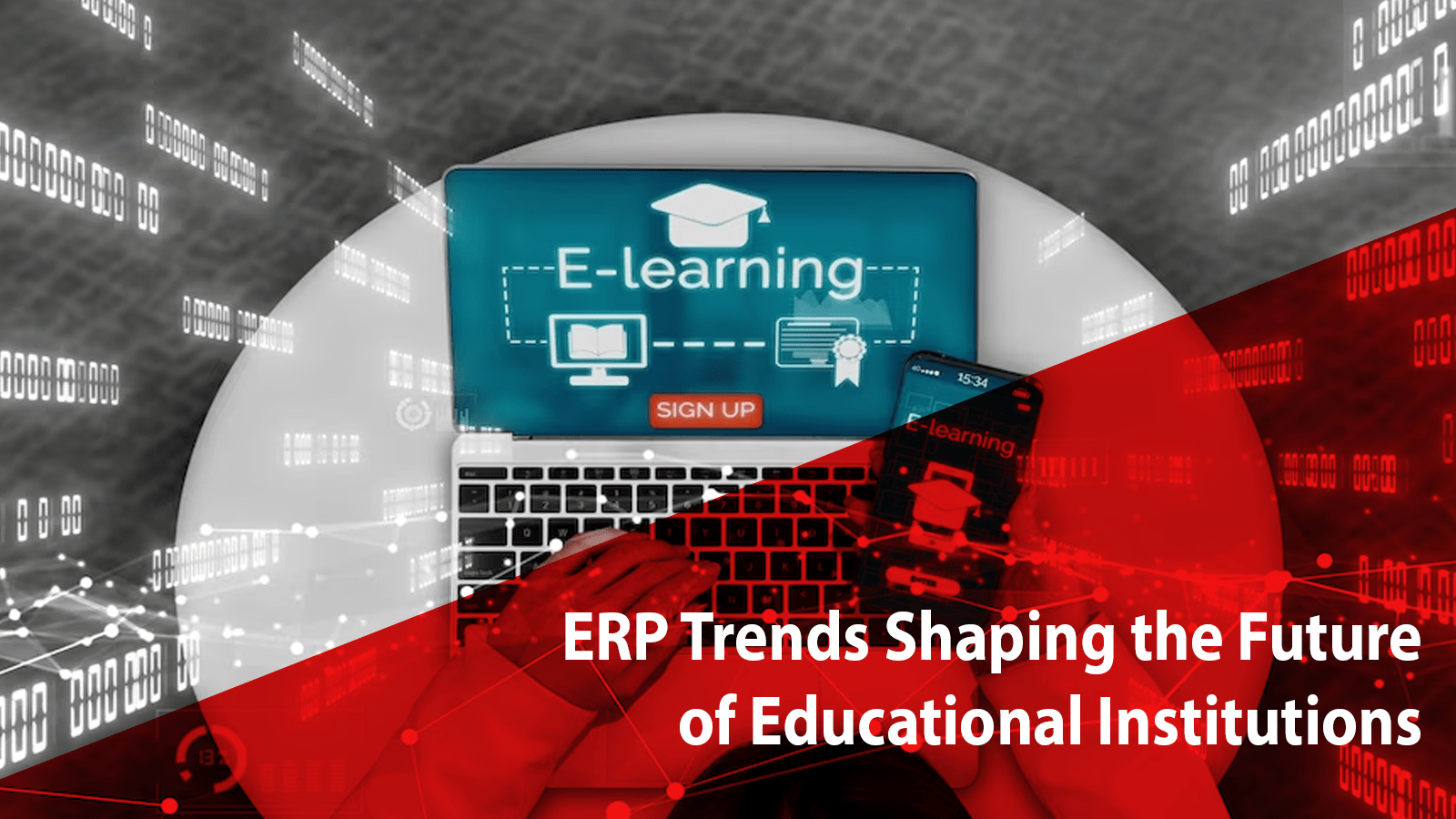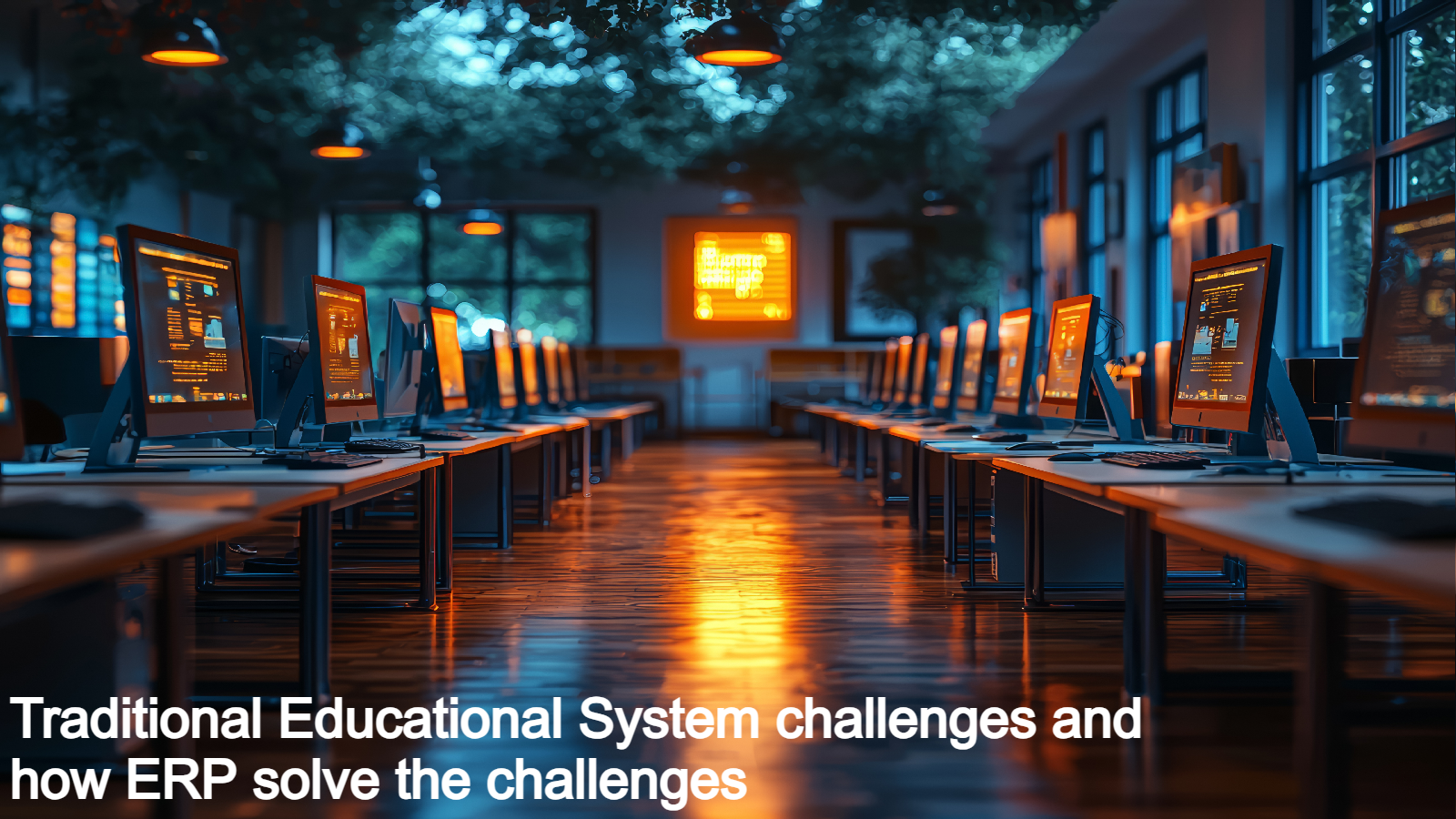Emerging ERP Trends Influencing the Future of Educational Institutions
In the fast-evolving landscape of education, Educational Resource Planning (ERP) systems have emerged as game-changers, revolutionizing how institutions manage their operations, streamline processes, and enhance the learning experience. As technology advances, new trends are shaping the future of educational institutions. In this article, we’ll delve into the ERP trends set to transform the educational sector, improving efficiency, data management, and the overall educational experience.
The Importance of ERP in Education
Before we dive into the latest trends, let’s understand the critical role that ERP systems play in educational institutions.
- Efficient Resource Management: ERP systems enable educational institutions to effectively manage resources, including faculty, facilities, and budgets. This efficiency ensures that resources are carefully allocated, leading to cost savings and improved operational effectiveness.
- Data-Driven Decision-Making: ERP systems provide real-time access to data and analytics, allowing educational leaders to make informed decisions. This data-driven approach enhances strategic planning, resource allocation, and student support services.
- Enhanced Student Experience: ERP systems improve the student experience by offering features like online registration, accessible learning materials, and integrated communication tools. This increases student engagement, satisfaction, and retention rates.
- Streamlined Administrative Tasks: ERP automates various administrative tasks, reducing manual data entry and paperwork. This not only saves time but also minimizes errors and enhances the productivity of organizational processes.
- Improved Accountability: ERP systems promote transparency and accountability in educational institutions. They help with compliance, auditing, and monitoring, ensuring that institutions conform to regulations and maintain ethical standards.
- Integration of Departments: ERP systems integrate different departments and functions within an institution, fostering collaboration and communication among faculty, staff, and students. This integration streamlines operations and facilitates cross-functional cooperation.
- Adaptation to Modern Learning: As educational methods evolve, ERP systems support the implementation of modern learning approaches, including online and hybrid education. They provide the technological infrastructure necessary for these changes.
Now, let’s explore the emerging trends in the ERP landscape that are shaping the future of educational institutions.
Cloud-Based ERP Solutions
More educational institutions are transitioning to cloud-based ERP solutions as they offer numerous advantages, including cost-effectiveness, scalability, and accessibility. They allow educational institutions to store and manage data securely on remote servers, making it easier for stakeholders to access information from anywhere. This trend not only reduces the burden of maintaining physical servers but also enhances data security and disaster recovery capabilities.
Mobile Accessibility
In an era of smartphones and tablets, mobile accessibility is becoming increasingly important. Educational institutions are adopting ERP systems with mobile apps, ensuring students, teachers, and administrators can access information on the move. Mobile ERP apps enable users to check grades, attendance, assignments, and more, fostering a seamless and convenient experience as well as promoting communication and engagement within the educational community.
Data Analytics and Business Intelligence
Data is a valuable asset for educational institutions, and the integration of data analytics and business intelligence tools within ERP systems is a growing trend. These tools enable institutions to gather insights from the vast amounts of data they collect. Educators can use data analytics to make informed decisions, such as identifying at-risk students and implementing timely interventions. This trend is pivotal in enhancing the educational experience and increasing student success rates.
Personalized Learning
Personalized learning is a trend that has been gaining momentum in recent years. ERP systems are playing a significant role in making personalized learning a reality. By tracking student performance, interests, and preferences, institutions can tailor educational content and experiences to individual needs. This approach not only increases student engagement but also improves learning outcomes.
Integration with Learning Management Systems (LMS)
ERP systems are increasingly integrating with Learning Management Systems (LMS) to streamline educational processes further. This integration allows for seamless data transfer between the two systems, simplifying the management of courses, assignments, and student records. It enhances the communication between students and teachers, fostering a more efficient learning environment.
Cybersecurity Measures
With the increased reliance on technology, educational institutions are becoming more vulnerable to cybersecurity threats. The protection of sensitive student and institutional data is vital. ERP systems incorporate robust cybersecurity measures, such as encryption, multi-factor authentication, and intrusion detection systems, to safeguard against data breaches and cyberattacks.
AI and Automation
Artificial Intelligence (AI) and automation are shaping the future of ERP in education. These technologies are streamlining administrative tasks, reducing manual work, and improving the efficiency of educational processes. The use of chatbots and virtual assistants in handling routine inquiries and administrative tasks allows staff to focus more on high-value activities.
Sustainability and Environmental Responsibility
Many educational institutions are focusing on sustainability and reducing their environmental footprint. ERP systems track and manage resource consumption, reduce paper usage through digital workflows, and promote eco-friendly practices in the campus community.
Conclusion
In conclusion, Education ERP systems are at the forefront of reshaping the future of educational institutions. From cloud-based solutions to personalized learning and advanced data analytics, these trends are enhancing the efficiency, effectiveness, and security of educational operations. As we move forward, technology integration will continue to play a pivotal role in the evolution of education.
Frequently Asked Questions (FAQs)
What is an ERP system in education?
An ERP system in education is a software solution that integrates various departments and functions within an educational institution. It centralizes data storage, streamlines processes, and enhances communication, ultimately improving the overall efficiency and effectiveness of the institution.
How does mobile accessibility benefit educational institutions?
Mobile accessibility allows students, teachers, and administrators to access information on the go, fostering convenience and flexibility. It ensures that stakeholders can stay connected and informed, even outside the physical campus.
Why is data analytics important in education?
Data analytics in education is crucial as it enables institutions to gain valuable insights from the data they collect. This data-driven approach helps educators make informed decisions, improve learning outcomes, and identify areas where intervention is needed to support student success.
How can educational institutions leverage emerging technologies within ERP systems to improve student engagement, retention, and overall learning outcomes?
Educational institutions can use emerging technologies within ERP systems to personalize learning, enhance communication, offer predictive insights, provide mobile accessibility, and manage resources efficiently.
Can you provide examples of successful implementations of ERP systems in educational institutions?
MAHSA and MMU implemented Elvis Education ERP to transform their administrative processes. They experienced 25,000+ application conversions and a 60% increase in efficiency.








